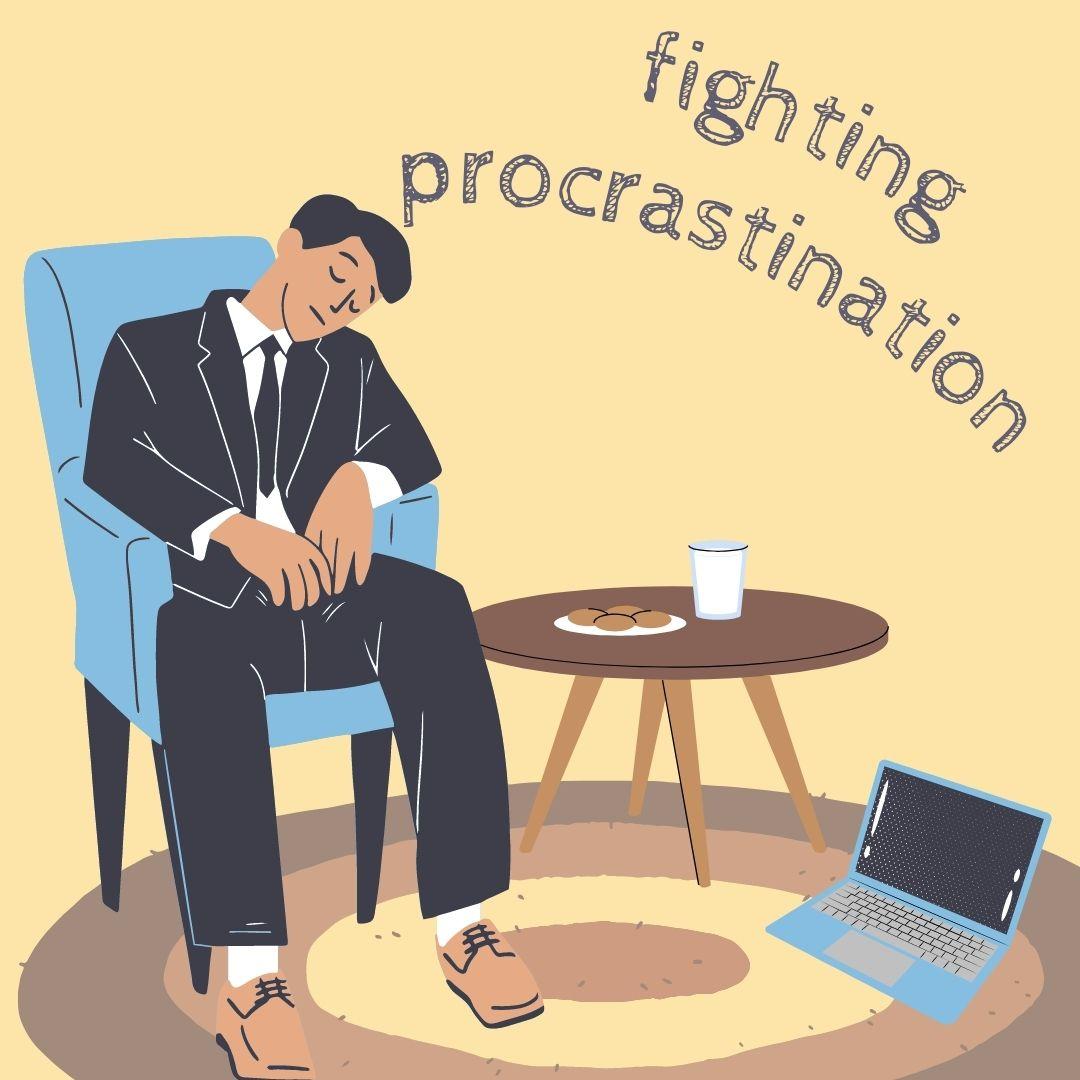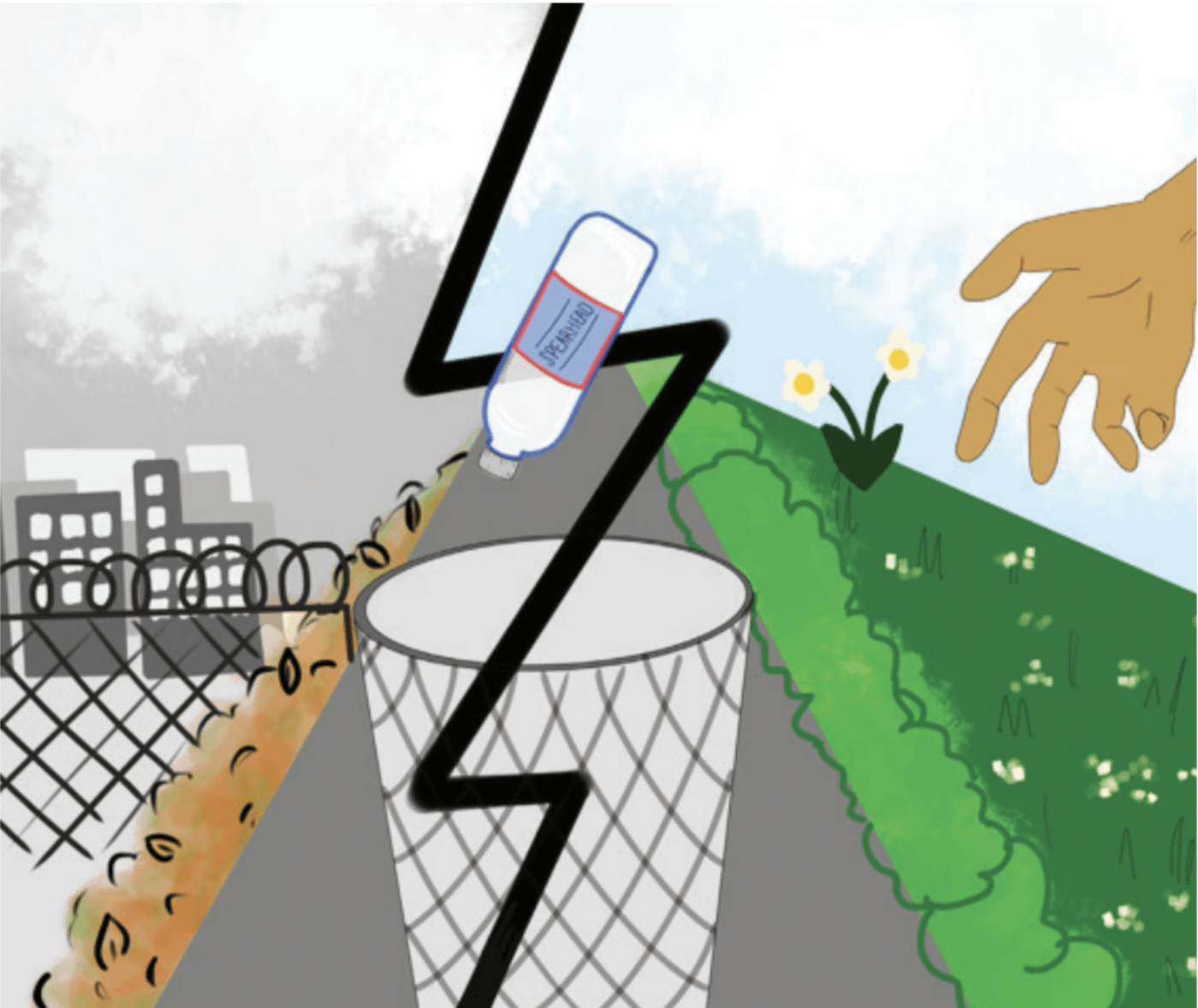Students on campus buzzed with life and energy at the start of the 21-22 school year, but then-sophomore Grace Zhao could not smile with them.
Instead, she was consumed with anxiety about her first human geography assignment, which, despite its simplicity, she could not bring herself to start.
For years, Zhao, now a junior has been a procrastinator. Beginning in middle school, the ease of the material in her classes allowed Zhao to glide by with minimal effort. As a result, her procrastination developed gradually over time.
“When you’re young and you procrastinate, there are no consequences,” Zhao said.
“I remember I would get home and watch YouTube until 9 p.m. And then, in the last half hour, really last minute, I would just rush through my work and go to bed.”
Despite its negative consequences, procrastination is pervasive in student culture at Country Day.
Pamela Peters, the social and emotional counselor for middle and high school, iden tified several causes of procrastination, such as fear of failure, distractions, and a tendency to avoid stress.
However, the root of procrastination, fear, can be attributed to “monkey mind,” a term that has been used for years, Peters said.
“When monkeys swing from trees, they make a loud, crazy screeching noise, and they compare that to the noise we sometimes hear
in our heads, the noise full of worry, doubt and what-ifs,” Peters said.
It is Peters’ task to help students become aware of their needs and overcome their fears.
Although many may not realize it, fear is linked to the monkey mind, which everyone has.
“What really gets in our way are our thoughts, beliefs and opinions,” Peters said. “Regardless of the facts, whatever you be lieve is true is really true for you, and it can really get in the way of making your dreams a reality.”
Once the belief of not being enough or not having what it takes sets in, so does the urge to avoid stress and difficult tasks.
That’s when hormones like adrenaline are released in the brain and the response is an intense dread and fear of failure and incompetence, Peters said.
“The fear gives you two choices — fight or flight — but either way, the response creates more anxiety, depression and shame, and it can even lead to physical illness,” Peters said.
Zhao has experienced the tremendous toll that procrastination has taken on her mental health.
“In middle school, I would pass most things without studying, so I didn’t know how to study or have any skills when I needed them. It started getting really stressful,” Zhao said.
Zhao said her willpower to accomplish goals and complete assignments was severely undermined, and that stemmed from building her study habits around procrastination.
The anxiety built up to the point where she was unable to bring herself to start her homework.
For Zhao, however, stopping procrastination proved incredibly difficult. “I always recognized tht it was a prob lem, but I didn’t have the maturity or will power to do anything about it,” Zhao said. “It’s tough to have that level of executive function at a young age.”
Having the self-awareness to recognize that procrastinating was detrimental to her mental health and academic performance was the first step to stopping for Zhao.
Removing distractions from her work environment, such as her phone, has helped her remain focused.
Peters said there is a connection between procrastination, mental illness and health, emphasizing that most negative thoughts are produced by the monkey mind.
According to Peters, the more stress and trauma that one has experienced, especially in childhood, the more difficult it is to believe in oneself.
However, it is not impossible.
“A belief is only a thought that you keep telling yourself over and over,” Peters said. “By questioning these thoughts, you can doing it.”
Although developing an awareness of monkey mind covers the mental aspect of procrastination, external factors still remain. Oftentimes, they enable the habit to persist.
To combat this, freshman Ava Dunham clears her workspace of distractions to prevent procrastination.
Other methods that Dunham uses are mapping out projects, creating timelines, and self-imposing deadlines; however, they are not always effective.
For example, “something will come up, like an assignment from another class that needs to take priority,” Dunham said.
“So, I end up getting behind and becom ing a big procrastinating mess again.” Dunham also struggles to center herself when completing unappealing work. “I will find a reason to leave whatever I’m doing, and it never works out well,” Dunham said. “If I think that I could excel at some thing, I am interested in it, but if I’m not interested, I don’t feel motivated enough to want to do well, so I end up finding rea sons to get myself distracted.”
To eliminate procrastination, Peters offers advice on how to improve external factors.
- Separate each large assignment into smaller more manageable tasks and work in smaller time frames with a number of breaks
- Reward yourself after completing a task. Instead of treating finishing work as a thankless expectation, a reward triggers positive hormones, such as dopamine, to be released in the brain.
- Create a study or work environment void of distractions.
- Remove phones and other devices from the area, setting them on “Do Not Disturb.”
- Consider going to a library or coffee shop to eliminate distractions at home.
- Find an accountability partner, someone who can both support you and hold you accountable.
Although implementing such advice is hard, continued practice of these tips will help build effective study habits. This is especially important for those aiming to put an end to their negative habit of procrastination at the beginning of the new semester.
By Lauren Lu
This story was originally published in the February 8, 2023 issue of The Octagon



